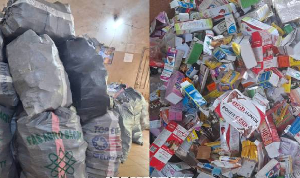In order to find a growth relay in the South of the Sahara, the Tunisian Teriak Company intends to revive the Cameroonian Cinpharm Laboratory, which was stopped in 2013.
Teriak Laboratories are in Douala so that by the end of the year, their leaders will revive the production of Cinpharm. In March, J.A. indicated the entrance of Tunisian society in the capital of the Cameroonian company, whose activity had stopped due to the scale of its debts: 3.5 billion FCFA (about 5.3 million Euros).
The two partners would not disclose the amount of the transaction, Teriak simply noted to have taken control of the majority of the shares. For his part, Célestin Tawamba, CEO of Cadyst Invest (the holding company that manages Cinpharm), evoked "a few billion FCFA. For Teriak, this union will permit them to find new areas of development to take over from its domestic market.
The Tunisian laboratory manufactures under license for multinational pharmaceutical, which allows it to be present on a wide range of drugs, psychiatric (Lexomil) Neurology to Rheumatology (Voltaren) and then painkillers Classics (Panadol). Its turnover reached 70 million dinars (about 31 million Euros) in 2014, according to Sara Masmoudi, Executive Director of Teriak.
“Our drug market is sluggish, with a growth of 0.1%, she says. It is therefore, crucial to go in Francophone sub-Saharan Africa. And in Cameroon, the language, the culture and the attractiveness of medicines manufactured in Tunisia are other benefits we enjoy.”
In Douala, the company must however, deal with the absence of Tunisian banks, direct flights via Tunisair and diplomatic support to advance its project (the Ambassador of Tunisia in the area covers five countries).
Cinpharm, Teriak first acquisition in a sub-Saharan country, should serve as a basis for its expansion in Central Africa but also in Côte d'Ivoire and Senegal, where the group already exports. The site of Douala is brought to produce some 80 generic drugs whose Cinpharm has licenses, as well as those of Teriak (more than 150), which also plans to market its products manufactured in Tunisia in Cameroon.
Despite its closure in spring 2013, the factory, inaugurated in 2010, remains in good condition. "It should be brought up to standards, but this does require large investments," explains Sara Masmoudi, without elaborating. Currently, there are two Teriak employees on-site.
Others should join them, but the goal is to turn the factory with Cameroonian staff within two or three years. But reviving Cinpharm will perhaps not be so easy. Indeed, the Cameroonian laboratory has already experienced two failures with foreign partners.
In 2010, they approached Cipla to obtain technical support, but the experience had turned short because of the poor quality of the raw materials supplied by the Indian company. Then, in 2012, Tunisian SAIPH was interested, but the technical partnership had flipped over due to the financial difficulties in Cinpharm.
If Célestin Tawamba is positive about the arrival of Teriak, he remains cautious about the future of this collaboration and accurate that it is the only company that showed interest.
Consultancy Manager of Capinvest Partners, Maher Zaanouni was confident: "Kilani [parent company of Teriak] group invests on long-term. “If it needs financial support, this 'North-South' investment project in Africa will attract subsidiaries to private development banks,” he argued.
Infos Business of Thursday, 24 September 2015
Source: Jeune Afrique












